CMA Intermediate Syllabus 2025 is categorized into eight parts. The syllabus is divided into two groups: Groups 1 and 2. Each section carries 100 marks, and the exam has no negative marking.
Table of Contents
The Institute of Cost Accountants of India (ICMAI) has prescribed the CMA Intermediate Syllabus 2025, which aims to give prospective cost and management accountants a thorough understanding of the fundamentals of accounting and business. The syllabus is divided into two groups, each of which consists of four papers covering important topics like accounting, taxation, business laws, cost management, and strategic management.
For the CMA Group 1 concentrates on fundamental subjects like Financial Accounting, Business Laws and Ethics, Direct and Indirect Taxation, and Cost AccountingGroup 2 covers more complex subjects like Operations and Strategic Management, Corporate Accounting, Financial Management, and Management Accounting. Students can use the official PDFs to efficiently plan their studies, and it is crucial to comprehend the topic-by-topic, detailed structure of each paper for focused preparation.
CMA Intermediate Syllabus 2025 PDF
The official CMA intermediate syllabus PDFs for eight papers are as follows:
| Subjects | PDFs |
| P5: Business Law and Ethics | Download Now |
| P6: Financial Accounting | Download Now |
| P7: Direct And Indirect Taxation (DITX) | Download Now |
| P8: Cost Accounting | Download Now |
| P9: Operations Management and Strategic Management (OMSM) | Download Now |
| P10: Corporate Accounting and Auditing (CAA) | Download Now |
| P11: Financial Management And Business Data Analytics (FMDA) | Download Now |
| P12: Management Accounting | Download Now |
Also Read: CFA vs CMA - Which is Better?
CMA Intermediate Syllabus 2025: Group 1
CMA intermediate syllabus group 1 is divided into four parts, P5 to P8. The total section covers 400 marks, 100 each.
Further, CMA inter-subjects group 1 is subdivided into categories that detail the entire course.
P5: Business Law and Ethics
Financial accounting of CMA inter group 1 syllabus covers nine sub-topics. Each of these is focused on critical and diverse aspects of accounting.
1. Commercial Laws
- Introduction to Law and Legal System in India
- Introduction to the Constitution of India
- Fundamental Rights
- Sources of Law
- Primary and Subordinate Legislation
- Legislative Process in India
- Legal Methods Including Judicial Alternative Dispute Resolution (ADR) Process in India 1.7 Legal Terminology and Maxims
- Indian Contracts Act, 1872
- Essential Elements of a Contract, Offer and Acceptance
- Void and Voidable Agreements
- Consideration
- Legality of Object
- E-contracts - Essential Requirements for Enforceability
- Constraints to Enforce Contractual Obligations
- Quasi-contracts, Contingent Contracts, Termination or Discharge of Contracts 2.8 Assignment of Contractual Rights and Obligations
- Representations and Warranties
- Impossibility and Force Majeure
- Termination by Novation
- Tender Procedure of Government Contract
- Special Contracts - Indemnity and Guarantee; Bailment and Pledge; Laws of Agency
- Sale of Goods Act, 1930
- Essential Conditions of a Contract of Sale
- Transfer of Ownership
- Conditions and Warranties
- Performance of the Contract of Sale
- Rights of Unpaid Seller
- Auction Sales
- Negotiable Instruments Act, 1881
- Definition and Features of Negotiable Instrument
- Crossing, Endorsement and Material Alteration
- Acceptance, Assignment and Negotiation
- Rights and Liabilities of Parties
- Dishonour of a Negotiable Instrument (with Special Emphasis on Section 138)
- Indian Partnership Act, 1932
- Nature of Partnership
- Rights and Liabilities of Partners
- Formation, Reconstitution and Dissolution of Firms
- Limited Liability Partnership Act, 2008
- Concept, Formation, Membership, Functioning
- Dissolution
2. Industrial Laws
3. Corporate Laws
- Companies Act, 2013
- Company Types, Promotion, Formation and Related Procedures (Sec 1 to Sec 122 of companies Act, 2013)
- Director - Role, Responsibilities, Qualification, Disqualification, Appointment, Retirement, Resignation, Removal, Remuneration and Powers, Directors Identification Number
- Operational and Financial Control
- Internal Financial Control for Financial Reporting (Section 134, 143 and 177)
- Rights of Shareholders
- Key Managerial Personnel
4. Business Ethics
- Business Ethics and Emotional Intelligence
- Ethics – Meaning, Importance and Nature
- The “Seven Principles of Public Life” – Selflessness, Integrity, Objectivity, Accountability, openness, Honesty and Leadership
- The Relationship between Ethics and Law
- Business Ethics and its Relevance to Business
- Values and Attitudes of Professional Accountants
- Primary Norms of Business Ethics - Honesty, Accountability etc., the Application in Decisions regarding Employers, Finance and Trading
- Internal Code of Ethics
- Ethics in Business Dealings
- Case Study on Business Ethics
- Emotional Intelligence (Concept and Importance)
P6: Financial Accounting
Financial accounting of CMA inter group 1 syllabus covers nine sub-topics. Each of these is focused on critical and diverse aspects of accounting.
1. Accounting Fundamentals
- Four Frameworks of Accounting (Conceptual, Legal, Institutional and Regulatory)
- Accounting Principles, Concepts and Conventions
- Capital and Revenue Transactions
- Accounting Cycle
- Journal (Day Books and Journal Proper
- Cash Book, Bank Book, Bank Reconciliation Statement
- Trial Balance
- Adjustments and Rectifications
2. Accounting For Special Transactions
- Bills of Exchange, Consignment, Joint Venture
3. Preparation Of Financial Statements
- Preparation of Final Accounts of Commercial Organisations, Not-for-Profit Organisations and from Incomplete Records
- Preparation of Financial Statements of Not-for-Profit Organisation
- Preparation of Financial Statements from Incomplete Records
4. Partnership Accounts
- Partnership Accounting
- Retirement of Partner
- Death of Partner
- Treatment of Joint Life Policy
- Dissolution of Partnership Firms Including Piecemeal Distribution
- Amalgamation of Partnership Firms
- Conversion of Partnership Firm into a Company and Sale of Partnership Firm to a Company
- Accounting of Limited Liability Partnership
5. Lease Accounting
6. Branch (including Foreign Branch) and Departmental Accounts
7. Insurance Claim for Loss of Stock and Loss of Profit
8. Hire Purchase and Installment Sale Transactions
9. Accounting Standards
- Introduction to Accounting Standards
- Specified Accounting Standards with Comparative Provisions under Ind AS 9.2.1 Disclosure of Accounting Policies (AS 1).
P7: Direct And Indirect Taxation (DITX)
The direct and indirect taxation section deals with the various tax processes. GST and customs taxes are an intricate part of CMA inter group 1.
1. Direct Taxation
- Basics of Income Tax Act
- Basic Concepts, Basis of Charge and Capital & Revenue Receipts
- Residential Status and Scope of Total Income
- Agricultural Income
- Income which do not form part of Total Income
2. Heads of Income
- Salaries
- Income from House Property
- Profits and Gains of Business or Profession including
- Capital Gains
- Income from Other Sources
3. Total Income and Tax Liability of Individuals & HUF
- Income of Other Person included in Assesses Total Income (Clubbing of Income)
- Set off and Carry Forward of Losses
- Deductions, Rebate and Relief
- Taxation of Individual (including AMT but excluding Non-resident) & HUF 3.5 Advance Tax
- Tax Deducted at Source & Tax Collected at Source (excluding Non-resident) 3.7 Filing of Return of Income
- PAN
- Self-Assessment & Intimation
4. Concept of Indirect Taxes
- Concept and Features of Indirect Taxes
- Difference between Direct and Indirect Taxes
- Background of erstwhile Indirect Taxes (Central Excise, VAT etc.)
- Constitutional Validity of GST
5. Goods and Services Tax (GST) Laws
- Introduction to GST Law
- Levy and Collection of CGST and IGST
- Basic concepts of Time and Value of Supply
- Input Tax Credit
- Computation of GST Liability
- Registration
- Tax Invoice – Electronic Way Bill
- Returns and Payment of Taxes
6. Customs Act
- Customs Act-Basic Concepts and Definitions
- Types of Duties
- Valuation Rules
- Computation of Assessable Value and Duties
P8: Cost Accounting
The cost accounting of the CMA intermediate syllabus is divided into three sections: Introduction to Cost Accounting, Methods of Costing, and Cost Accounting Techniques. The weightage is divided into 40, 30, and 30, respectively.
1. Introduction to Cost Accounting
- Introduction
- Important Cost Accounting Terms
- Elements of Cost
- Classification of Cost
- Preparation of Cost Sheet and Ascertainment of Profit
2. Cost Ascertainment – Elements of Cost
- Material Costs
- Employee Costs
- Direct Expenses
- Overheads
3. Cost Accounting Standards (CAS 1 to CAS 24)
4. Cost Book Keeping
- Cost Book - Keeping
- Reconciliation of Costing and Financial Profit
- Integrated Accounting System
5. Methods of Costing
- Job Costing
- Batch Costing
- Contract Costing
- Process Costing
- Operating Costing
6. Cost Accounting Techniques
- Marginal Costing
- Standard Costing and Variance Analysis
- Budget and Budgetary Control
Also Read: How to Become a CMA? Career, Role, Exam, Jobs & Salary
CMA Intermediate Syllabus 2025: Group 2
The CMA inter-group 2 subjects are categorized into four papers. The CMA intermediate syllabus 2025 covers 400 marks. The CMA inter group 2 papers are as follows:
- Paper 9: Operations Management and Strategic Management (OMSM)
- Paper 10: Corporate Accounting and Auditing (CAA)
- Paper 11: Financial Management and Business Data Analytics (FMDA)
- Paper 12: Management Accounting (MA)
P9: Operations Management and Strategic Management (OMSM)
The P9 of the CMA inter syllabus is OMSM (Operations Management and Strategic Management). There are two sections: section A is Operations Management, which is 60% weightage, and section B is 40% weightage. The syllabus for CMA inter subjects is as follows:
1. Section A: Introduction
- Scope
- Characteristics of Modern Operations Functions
- Recent Trends in Production and Operations Management
- Operations Planning
- Demand Forecasting
- Capacity Planning
- Facility Location and Layout
- Resource Aggregate Planning
- Material Requirements Planning
- Manufacturing Resource Planning
- Economic Batch Quantity
- Designing of Operational Systems and Control
- Product Design
- Process Design and Selection
- Product Life Cycle
- Process Planning and Selection
- Design Thinking
- Application of Operation Research - Production Planning and Control
- Introduction
- Production Planning and Control
- Control Measures – Time & Motion Study, Method Study, Work Study 4.4 Optimum Allocation of Resources - LPP
- Transportation
- Job Evaluation, Job Allocation - Assignment
- Scheduling and Queuing Models
- Simulation and Line Balancing
- Lean Operations
- JIT
- Productivity Management and Quality Management
- Measurement Techniques of Productivity Index
- Productivity of Employee
- Productivity of Materials
- Productivity of Management Resources
- Productivity of other factors
- Productivity Improving Methods
- TQM Basic Tools and Certification
- ISO Standards Basics
- Project Management, Monitoring and Control
- Project Planning
- Project Life Cycle
- Gantt Charts
- PERT and CPM
- Basics of MS Project
- Economics of Maintenance and Spares Management
- Breakdown Maintenance
- Preventive Maintenance
- Routine Maintenance
- Replacement of Machine
- Spare Parts Management
2. Section B: Introduction
-
- Introduction to Strategy and Strategic Management
- Alignment of Strategy with Vision, Mission and Culture
- Objectives of Strategic Management
- Organisational Genomics
- Alignment with Individual Level Objective and Organisational Objective
- Balanced Score Card
- EVA – Driven Responsibility Accounting
- Strategic Analysis and Strategic Planning
- Analysis of Business Environment
- PESTEL, Value Chain and Porter’s 5 Framework
- SWOTC Analysis (Industry Sector and Company)
- Portfolio Analysis and BCG Matrix
- Stages in Strategic Planning
- Alternatives in Strategic Planning
- Formulation and Implementation of Strategy
- Strategy Formulation - Production Strategy, Supply Chain Strategy, Marketing Strategy, Human Resource Strategy
- Structuring of Organisation for Implementation of Strategy
- Strategic Business Unit
- Business Process Re-engineering
- Management Control, Operational Control and Task Control
- Goal Congruence
- Digital Strategy
- Introduction
- Digital Transformation for Competitive Advantages
- Innovations and Disruptive Business Models
- Emerging Trends in Digital and Social Marketing Strategies
P10: Corporate Accounting and Auditing (CAA)
P 10 is included in CMA inter group 2 subjects. The CMA intermediate syllabus 2025 of P10 is categorised into accounting standards, cash flow, auditing standards, and various auditing undertakings.
- Corporate Accounting
- Accounting for Shares and Debentures
- Issue of Shares, Forfeiture of Shares, Rights Issue, Bonus Issue, Sweat Equity Shares, Employee Stock Option and Stock Purchase Scheme, Buy-back of Shares
- Redemption of Preference Shares, Issue and Redemption of Debentures
- Underwriting of Securities
- Preparation of the Statement of Profit and Loss and Balance Sheet
- Statement of Profit and Loss (as per Division I of Schedule III)
- Balance Sheet (as per Division I of Schedule III)
- An Introduction to Division II of Schedule III
- Cash Flow Statement
- Accounts of Banking, Electricity and Insurance Companies
1. Accounting Standards
- Conceptual Framework
- Specified Ind AS with Comparative Provisions under AS
2. Basic Concepts of Auditing
- Nature, Scope, Objectives and Significance of Auditing
- Brief Introduction to Auditing Standards
- Audit Engagement, Audit Program, Audit Documentations, Audit Evidence, Audit Note Book
- Audit Risk, Assessment of Audit Risk, Internal Control, Internal Check, Internal Audit - Industry Specific, Interplay between Internal Audit and Statutory Audit, Risk Based Internal Audit, Internal Financial Control and Internal Control over Financial Reporting
- Audit Sampling, Audit Techniques and Analytical Procedure (Including Scrutiny of Trial Balance and Grouping Schedules)
- Application of Technology in Audit and Audit Trail
3. Provisions Relating to Audit under Companies Act, 2013
- Statutory Audit – Auditor’s Eligibility, Qualifications, Disqualifications, Appointment, Resignation, Rotation, Remuneration, Removal, Rights and Duties, Liabilities, Branch Audit and Joint Audit, Role of Audit Committee
- Cost Audit
- Secretarial Audit
- Audit of Various Items of Financial Statements (with Special Emphasis on Audit of Inventory and PPE)
- Audit Report, Report vs. Certificate, Reporting Requirements under Companies Act, Contents of the Reports and Modifications in the Report (with Coverage of CARO)
- Report on Internal Financial Control over Financial Reporting
- National Financial Reporting Authority (NFRA)
4. Auditing of Different Types of Undertakings
- Audit of Educational Institutions
- Audit of Healthcare Organisations
- Audit of Organisations in Hospitality Sector
- Audit of Banks
- Audit of Co-operative Societies
- Audit of Local Self-Government
P11: Financial Management And Business Data Analytics (FMDA)
The CMA Intermediate Syllabus 2025 for P 11 has two sections: Section A: Financial Management and Section B: Business Data Analytics. Financial marketing, budgeting, capital management, data processing, analysing, and presentation are covered in this section.
- Fundamentals of Financial Management
- Introduction to Financial Management
- Time Value of Money
- Risk and Return
1. Institutions and Instruments in Financial Markets
- Financial Institutions
- Capital Market
- Money Market
- Tools for Financial Analyses
- Comparative, Common-Size Financial Statements and Trend Analysis
- Financial Ratio Analysis
- Fund Flow Statement – Preparation and Analysis
- Cash Flow Statement – Preparation and Analysis
- Sources of Finance and Cost of Capital
- Sources of Finance
- Meaning of Cost of Capital
- Computation of Weighted Average Cost of Capital
2. Capital Budgeting
- Introduction to Capital Budgeting
- Identification of Cash Flows and Forecasting
- Cash Flow vs. Profit of the Firm
- Evaluation Techniques – Non-discounted and Discounted Cash Flow Methods
- Hurdle Rate in a Conglomerate Environment
3. Working Capital Management
- Introduction to Working Capital Management
- Receivable Management
- Payable Management
- Inventory Management
- Management of Cash and Cash Equivalents
- Financing Working Capital
4. Financing Decisions of a Firm
- Capital Structure and Capital Stacking
- Leverage Analyses and EBIT – EPS Analysis
- Dividend Decisions and Dividend Theories
5. Introduction to Data Science for Business Decision-making
- Meaning, Nature, Properties, Scope of Data
- Types of Data in Finance and Costing
- Digitization of Data and Information
- Transformation of Data to Decision Relevant Information
- Communication of Information for Quality Decision-making
- Professional Skepticism regarding Data
- Ethical Use of Data and Information
6. Data Processing, Organisation, Cleaning and Validation
- Development of Data Processing
- Functions of Data Processing
- Data Organization and Distribution
- Data Cleaning and Validation
7. Data Presentation: Visualisation and Graphical Presentation
- Data Visualisation of Financial and Non-financial Data
- Objective and Function of Data Presentation
- Data Presentation Architecture
- Dashboard, Graphs, Diagrams, Tables, Report Design
- Tools and Techniques of Visualisation and Graphical Presentation
8. Data Analysis and Modelling
- Process, Development and Types of Data Analysis
- Data Mining and Implementation of Data Analysis
- Analytics and Model Building (Descriptive, Diagnostic, Predictive, Prescriptive)
- Standards for Data Tagging and Reporting (XML, XBRL)
- Cloud Computing, Business Intelligence, Artificial Intelligence, Robotic Process Automation and Machine Learning
- Model vs. Data-driven Decision-making
P12: Management Accounting
CMA syllabus intermediate 2025 is distributed into eight categories. Management of accounting, costing, transfer pricing, Forecasting, Budgeting, and Budgetary Control are covered in this section.
1. Introduction to Management Accounting
- Conceptual Understanding
- Relationship between Management Accounting and Cost Accounting
- Role of a Management Accountant in Modern Business World
2. Activity Based Costing
- Traditional Cost System
- Definition and Meaning of Activity-Based Costing (ABC)
- Steps in ABC System
- Cost Pools and Cost Drivers
- Merits and Demerits of ABC System
- Activity Based Information and Decision Making
3. Marginal Costing
- Concept
- Cost-Volume-Profit Analysis
- Break-Even Charts and Profit Charts
- Multiple Product Break Even Analysis
- Differential Cost Analysis
- Marginal Costing Vs. Absorption Costing (advanced applications)
4. Applications of Marginal Costing in Short Term Decision Making
- Pricing Decision
- Make or Buy decisions
- Accept an Order or Reject
- Optimum Utilization of Factors of Production [Limiting Factor Analysis]
- Replacement Decision
- Evaluation of Alternative Choices
- Subcontracting and Ancillarisation
- Expansion of Business
- Shutdown or Continue
5. Transfer Pricing
- Concept
- Methods and Techniques
- Divisional Performance and Problem of Goal Congruence
- Determination of Inter-departmental or Inter-company Transfer Price
- International Transfer Pricing
6. Standard Costing and Variance analysis
- Material and Labour Variances
- Variable Overhead Variance
- Fixed Overhead Variance
- Sales Variance
- Interpretation of Variances and Inferences Drawn
7. Forecasting, Budgeting and Budgetary Control
- Introduction
- Rationale for Budgets
- General Principles in the Budgetary Process
- Formulation of various types of Budgets
8. Divisional Performance Measurement
- Organizations with Multiple Divisions, Benefits of Decentralization
- DuPont Analysis
- Divisional Performance Measurement tools – ROI, Residual Income
- Economic Value Added – Definition, EVA Centre, EVA Drivers
- Introduction to Learning Curve
- Balanced Score Card for Variable Pay Management
9. Responsibility Accounting
- Concept of Cost, Revenue, Profit and Responsibility Centres
- Preparation of Responsibility Report
10. Decision Theory
- Decision-Making under Certainty
- Decisions Making under Risk
- Decision-Making under Uncertainty
- Decision Tree
Also Read: CMA vs MBA
CMA Intermediate Syllabus 2025 Weightage
The CMA intermediate syllabus 2025 imparts knowledge, awareness, skills, and knowledge. The CMA inter-subjects both groups and focuses on diverse areas of business law, accounting, taxes, and management.
The weightage of the CMA inter-subjects in both groups is as follows:
| Sections | Syllabus | Weightage |
| CMA Intermediate Weightage 2025: Group 1 | ||
| P5: Business Law and Ethics | ||
| Section A | Introduction to Law and Legal System in India | 5% |
| Indian Contracts Act, 1872 | 10% | |
| Sale of Goods Act, 1930 | 5% | |
| Negotiable Instruments Act, 1881 | 5% | |
| Indian Partnership Act, 1932 | 5% | |
| Limited Liability Partnership Act, 2008 | ||
| Section B | Industrial Laws | 15% |
| Factories Act, 1948 | 10% | |
| Payment of Gratuity Act, 1972 | ||
| Employees Provident Fund and Miscellaneous Provisions Act, 1952 | ||
| Employees State Insurance Act, 1948 | ||
| The Code on Wages, 2019 | 5% | |
| Section C | Companies Act, 2013 | 40% |
| Section D: Business Ethics | 15% | |
| Business Ethics and Emotional Intelligence | 15% | |
| P6: Financial Accounting | ||
| Section A | Accounting Fundamentals | 15% |
| Section B | Accounting for Special Transactions | 10% |
| Bills of Exchange, Consignment, Joint Venture | 10% | |
| Section C | Preparation of Financial Statements | 20% |
| Preparation of Final Accounts of Commercial Organisations, Not-for-Profit Organisations and from Incomplete Records | 20% | |
| Section D | Partnership Accounts | 20% |
| Partnership Accounts | 20% | |
| Section E | Lease, Branch and Departmental Accounts etc. | 15% |
| Lease Accounting | 15% | |
| Branch (including Foreign Branch) and Departmental Accounts | ||
| Insurance Claim for Loss of Stock and Loss of Profit | ||
| Hire Purchase and Installment Sale Transactions | ||
| Section F | Accounting Standards | 20% |
| Accounting Standards | 20% | |
| P7: Direct and Indirect Taxes | ||
| Section A | Basics of Income Tax Act | 10% |
| Heads of Income | 25% | |
| Total Income and Tax Liability of Individuals & HUF | 15% | |
| Section B | Indirect Taxation | 50% |
| Concept of Indirect Taxes | 5% | |
| Goods and Services Tax (GST) Laws | 35% | |
| Customs Act | 10% | |
| P8: Cost Accounting | ||
| Section A | Introduction to Cost Accounting | 5% |
| Cost Ascertainment – Elements of Cost | 15% | |
| Cost Accounting Standards (CAS 1 to CAS 24) | 10% | |
| Cost Book Keeping | 10% | |
| Section B | Section B: Methods of Costing | 30% |
| Methods of Costing | 30% | |
| Section C | Section C: Cost Accounting Techniques | 30% |
| Cost Accounting Techniques | 30% | |
| CMA Intermediate Weightage 2025: Group 2 | ||
| P9: Operations Management | ||
| Section A | Introduction | 5% |
| Operations Planning | 5% | |
| Designing of Operational Systems and Control | 5% | |
| Application of Operation Research - Production Planning and Control | 20% | |
| Productivity Management and Quality Management | 5% | |
| Project Management, Monitoring and Control | 15% | |
| Economics of Maintenance and Spares Management | 5% | |
| Section B | Section B: Strategic Management | 40% |
| Introduction | 10% | |
| Strategic Analysis and Strategic Planning | 10% | |
| Formulation and Implementation of Strategy | 10% | |
| Digital Strategy | 10% | |
| P 10: Corporate Accounting | ||
| Section A | Accounting for Shares and Debentures | 10% |
| Preparation of the Statement of Profit and Loss and Balance Sheet (As Per Schedule III of Companies Act, 2013) | 10% | |
| Cash Flow Statement | 10% | |
| Accounts of Banking, Electricity and Insurance Companies | 10% | |
| Accounting Standards | 10% | |
| Section B | Section B: Auditing | 50% |
| Basic Concepts of Auditing | 10% | |
| Provisions Relating to Audit under Companies Act, 2013 | 30% | |
| Auditing of Different Types of Undertakings | 10% | |
| P 11: Financial Management | ||
| Section A | 80% | |
| Fundamentals of Financial Management | 5% | |
| Institutions and Instruments in Financial Markets | 10% | |
| Tools for Financial Analyses | 15% | |
| Sources of Finance and Cost of Capital | 10% | |
| Capital Budgeting | 15% | |
| Working Capital Management | 15% | |
| Financing Decision of a Firm | 10% | |
| Section B | Business Data Analytics | 20% |
| Introduction to Data Science for Business Decision-making | 5% | |
| Data Processing, Organisation, Cleaning and Validation | 5% | |
| Data Presentation: Visualisation and Graphical Presentation | 5% | |
| Data Analysis and Modelling | 5% | |
| P12: Management Accounting | ||
| Section A | Introduction to Management Accounting | 5% |
| Section B | Activity Based Costing | 10% |
| Activity Based Costing | 10% | |
| Section C | Decision Making Tools | 30% |
| Marginal Costing | 30% | |
| Applications of Marginal Costing in Short Term Decision Making | ||
| Transfer Pricing | ||
| Section D | Standard Costing and Variance Analysis | 15% |
| Standard Costing and Variance Analysis | 15% | |
| Section E | Section E: Forecasting, Budgeting and Budgetary Control | 15% |
| Forecasting, Budgeting and Budgetary Control | 15% | |
| Section F | Section F: Divisional Performance Measurement | 10% |
| Divisional Performance Measurement | 10% | |
| Section G | Responsibility Accounting | 5% |
| Responsibility Accounting | 5% | |
| Section H | Decision Theory | 10% |
| Decision Theory | 10% | |
Also Read: CMA Vs CA: Which one to choose?
CMA Intermediate Exam Pattern
The CMA inter-exam is held for eight separate papers. Each of the papers holds 100 marks. The exam is held online.
| Particulars | Details |
| Mode of exam | Online |
| Type of questions | MCQs and descriptive |
| Maximum marks per paper | 100 |
| Total Marks | 800 |
| Number of papers | 8 |
| Exam Duration | 180 Minutes (each paper) |
Also Read: CMA Intermediate Study Material
CMA Inter Study Material 2025
The CMA Intermediate study material guides the candidates on the exact syllabus. The steps to download the CMA inter-study material are as follows:
- Candidates must visit the official website of ICMAI.
- Next, they must search for the 'Students' Connect Portal' and click on it.
- The page will be redirected, and under the 'E-Academics Services', they can find the CMA inter study material.
- They must click on the 'Click Here' option.
- The study material page will open from where candidates can download the CMA inter study material 2025.
CMA Intermediate Books
The CMA intermediate books are available to download from the official website. Candidates can also download the study materials by clicking on the links below.
| Paper Name | CMA Intermediate Books PDF |
| Group 1 | |
| Business Law and Ethics | Download Now |
| Financial Accounting | Download Now |
| Direct And Indirect Taxation | Download Now |
| Download Now | |
| Cost Accounting | Download Now |
| Group 2 | |
| Operations Management and Strategic Management | Download Now |
| Corporate Accounting and Auditing | Download Now |
| Financial Management And Business Data Analytics | Download Now |
| Management Accounting | Download Now |
Also Read: CMA Final Syllabus

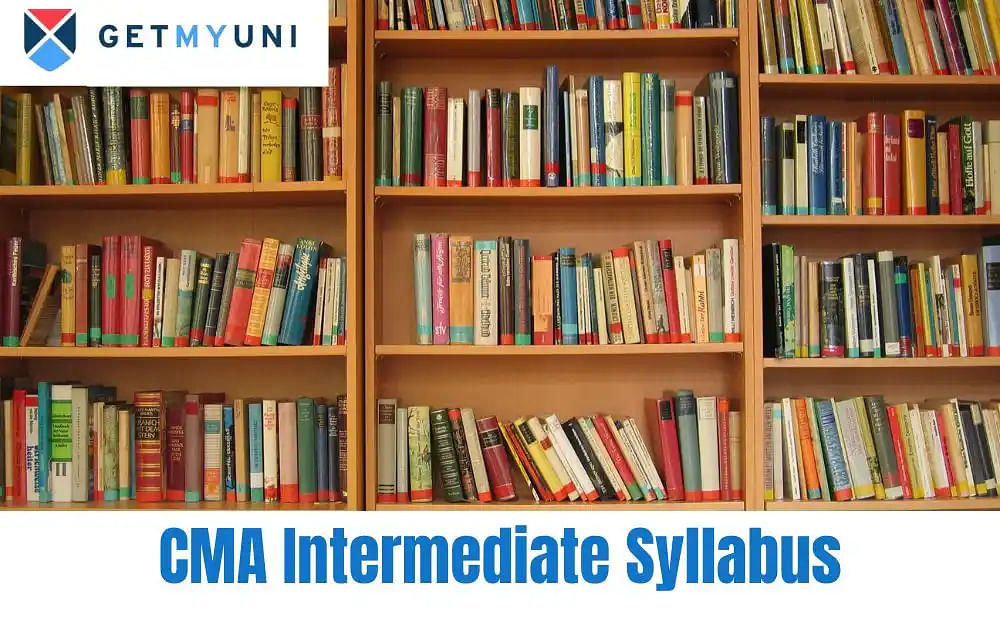

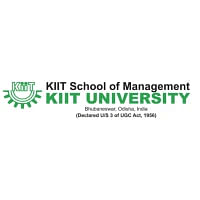




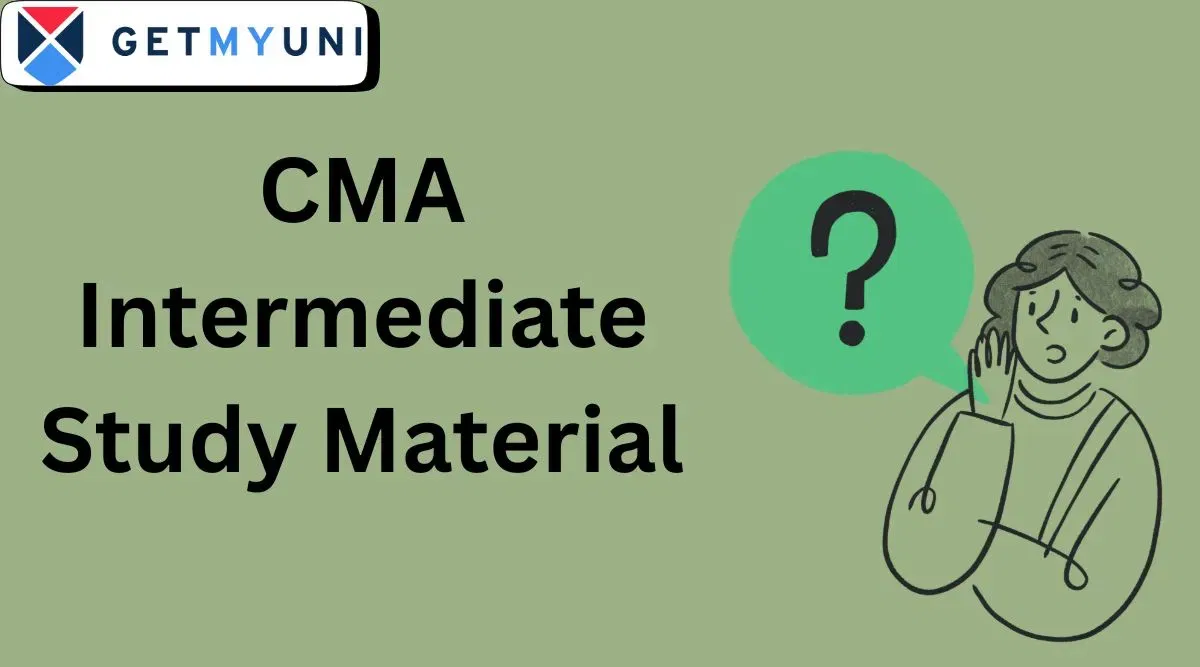

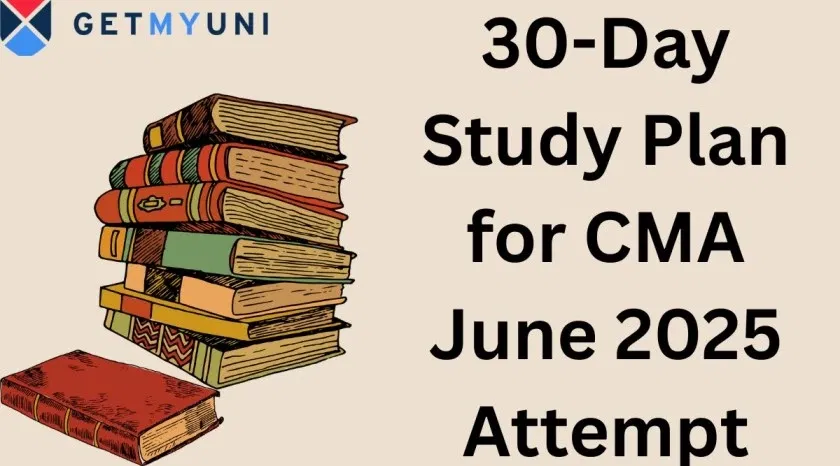
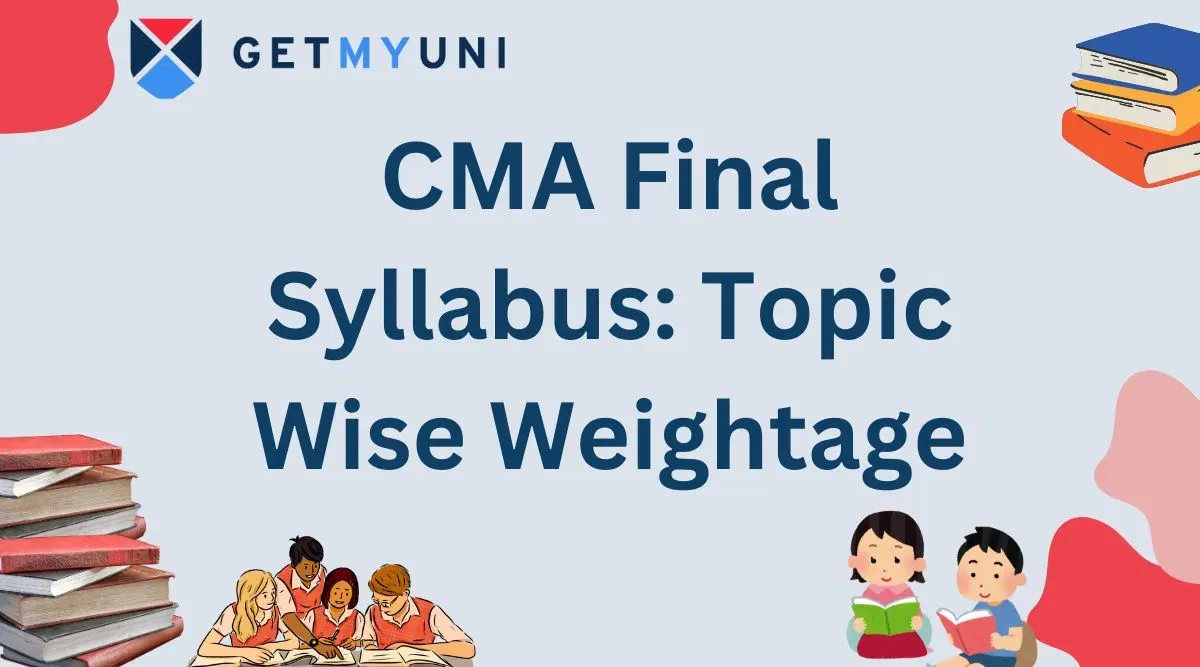

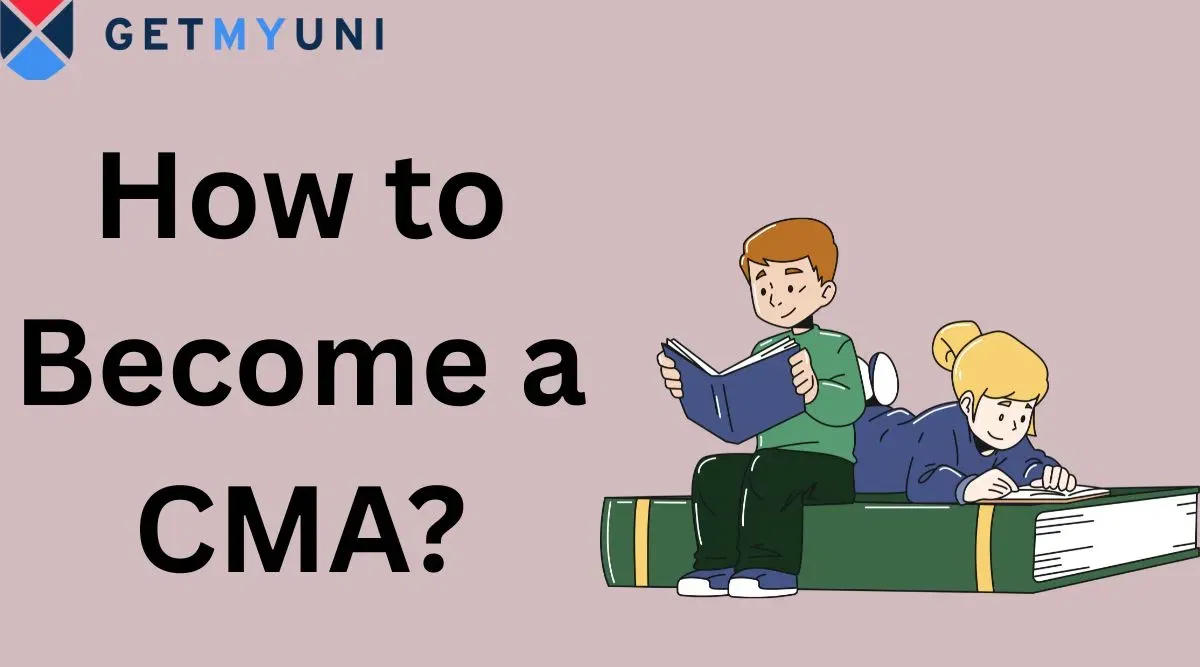














POST YOUR COMMENT